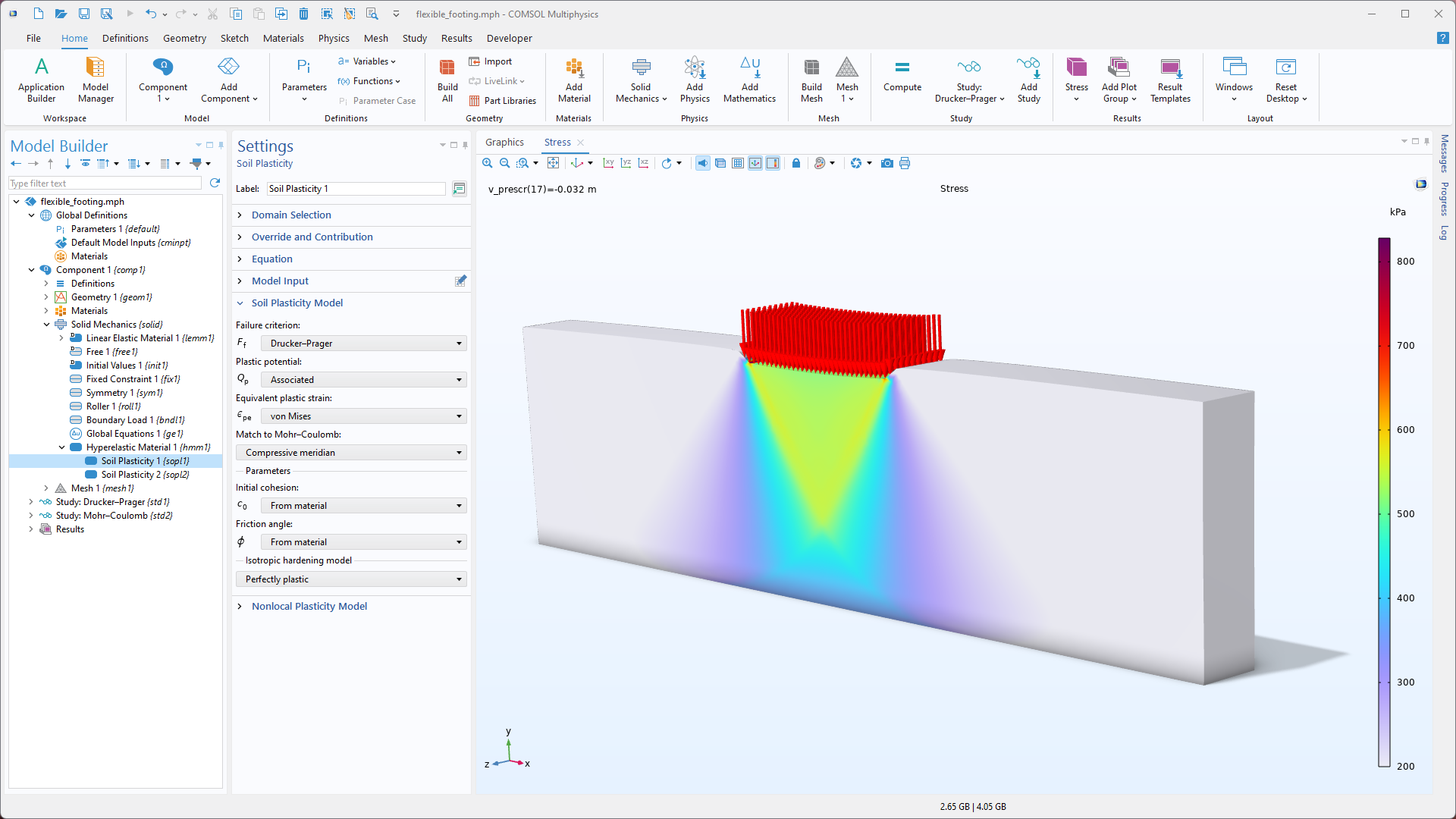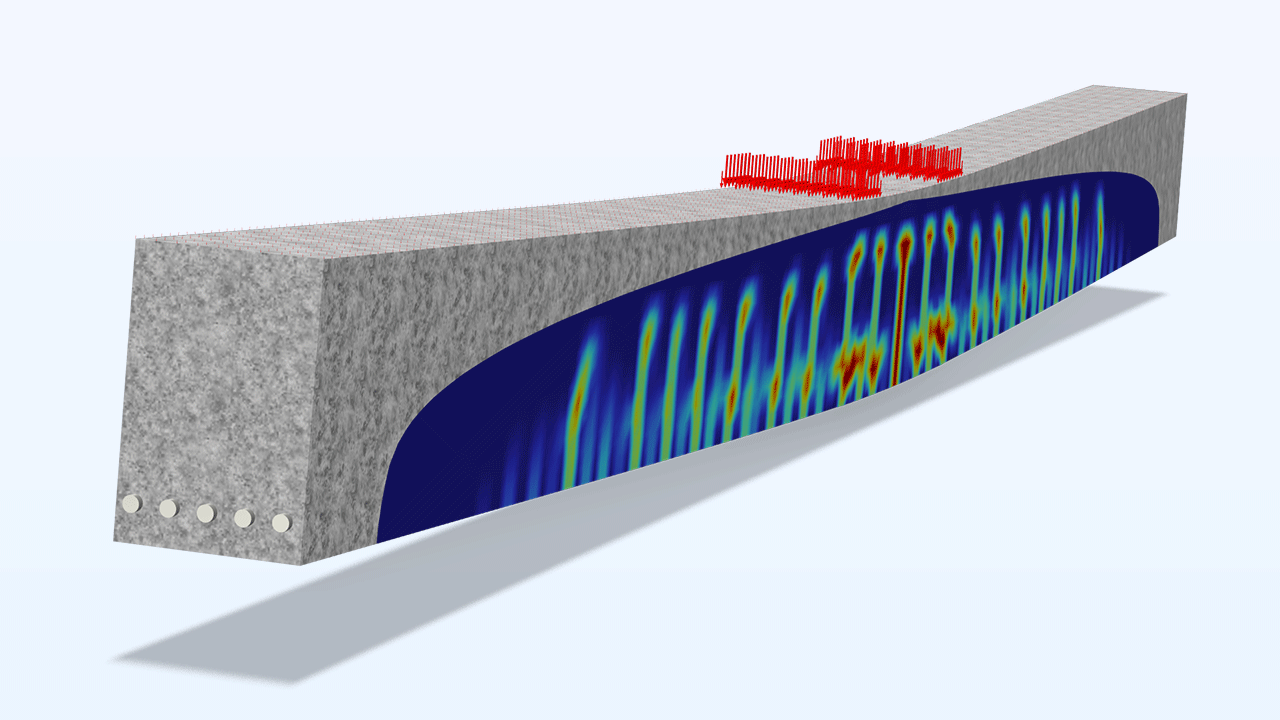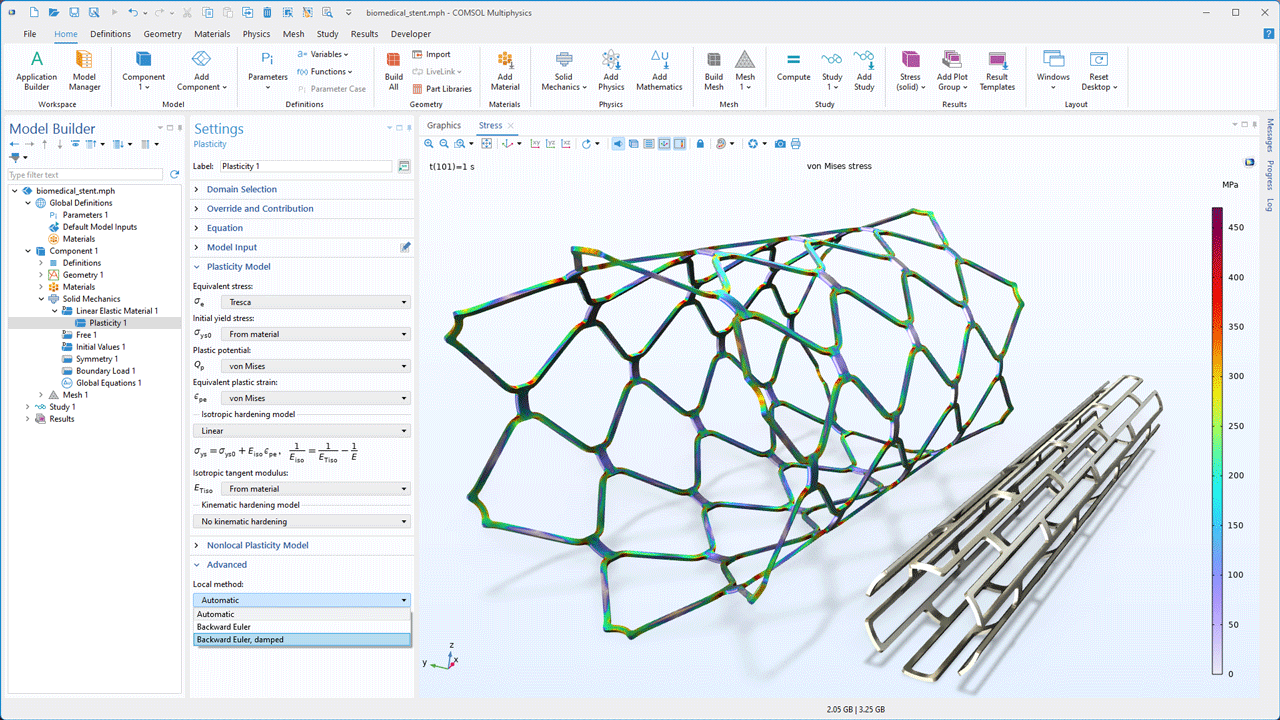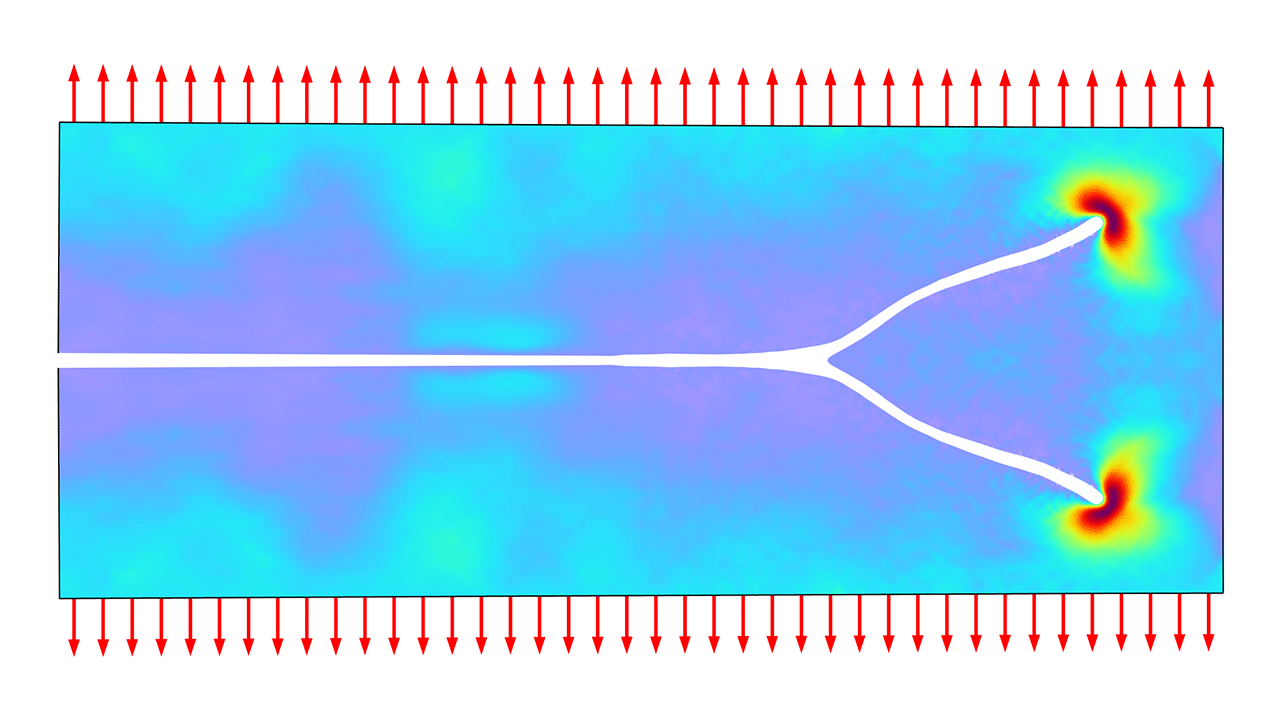Geomechanics Module Updates
For users of the Geomechanics Module, COMSOL Multiphysics® version 6.3 provides performance improvements, new tension cutoff and cap models for soil plasticity, and two hyperelastic materials to model large deformations in soils.
Enhancements to Soil Plasticity
The robustness of all plasticity models in the Soil Plasticity feature has been improved. In addition, all soil plasticity models can now be extended with a compression cap and a tension cutoff. Two different cap models are available: the elliptic cap and the planar cap, and two different tension cutoff criteria are available: the Rankine criterion and the mean stress criterion.
These enhancements can be seen in the following tutorial models:
- deep_excavation
- flexible_footing
- settlement_analysis
- settlement_analysis_transient
- slope_stability
- tunnel_excavation
Improvements to Coupled Damage–Plasticity
There are several improvements to the coupled damage–plasticity model in the Concrete node. The implementation of the plasticity model is more robust, and it now supports a multiplicative flow rule. A new Backward Euler, damped option is available as a local method. The overall computational cost of the model is also significantly reduced. These improvements can be seen in the Failure of a Concrete Beam Using Coupled Damage–Plasticity and Concrete Damage–Plasticity Material Tests tutorial models.
Performance Improvements
The computational cost of assembly operations for creep, plasticity, shape memory alloys, and viscoplasticity has been significantly reduced.
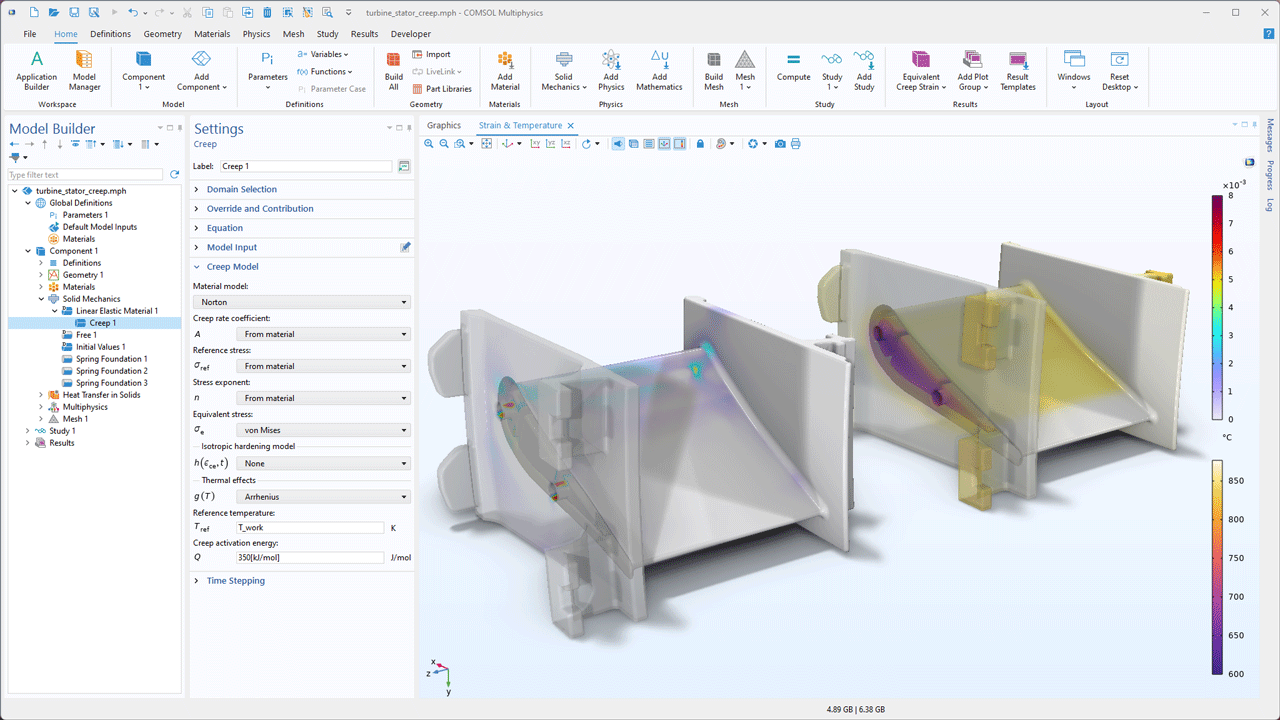
Plasticity Improvements
A new Backward Euler, damped algorithm is available for the Plasticity feature. The new method is intended to improve robustness for highly nonlinear plasticity models. In addition, a new Modified Johnson–Cook isotropic hardening model is available.
Hyperelastic Material Models
The Hyperelastic Material node with the Saint-Venant–Kirchhoff and Neo-Hookean models is now available in the Geomechanics Module. This functionality makes it possible to model soils under large compressive strains using a hyperelastic formulation.
New Tutorial Model
COMSOL Multiphysics® version 6.3 brings a new tutorial model to the Geomechanics Module.

